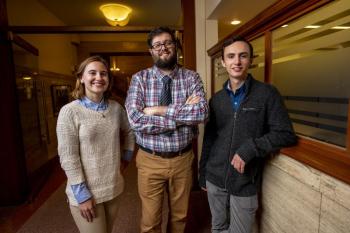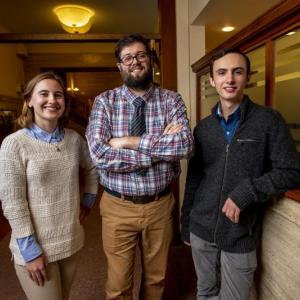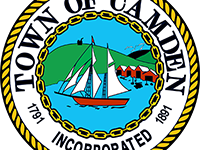Thomaston native named UMaine Fellow, awarded research grant
ORONO — A Thomaston native is one of three college students named 2019-2020 Clement and Linda McGillicuddy Humanities Center Undergraduate Fellows at the University of Maine.
Fellows serve as ambassadors of humanities for their peers, the campus and beyond. They each will receive $4,000 for two consecutive semesters while they work on their research projects.
Sarah Penney, of Thomaston, joins Noah Loveless and Matthew Ryckman as this year’s Fellows.
Penney is a third-year English major with a minor in media studies and an interest in folklore and literature.
For her project, “The Origins of Fate: Analyzing and Reconstructing the Proto-Indo-European Fate Deities,” Penney will concentrate on the nature of folkloric adaptations and reconstructions, and trace them in Norse mythology, poetics and linguistics.
She’ll investigate how these manifestations of faith imply how ancient peoples saw their lives, and how the survival of these views connects with modern beliefs.
Loveless, from Cumberland, is a fourth-year English and philosophy double major, with a creative writing concentration.
For his project titled “The Task of the Critic: The Philosophy and Aesthetics of Walter Benjamin,” Loveless will examine Benjamin’s innovative approach to philosophy and literary criticism.
Using Benjamin’s “The Arcades Project” as his central text, Loveless will explore how Benjamin’s ideas influenced his contemporaries, as well as current scholarly discourse in multiple disciplines, thereby changing the way critics engage with the material.
Ryckman, of Corning, New York, is a fourth-year mathematics and history double major, with concentrations in pure mathematics and medieval history.
His research, “Examining Euclid’s Elements from the Middle Ages to the University of Maine,” will revolve around the relationship between the advent of the printing press in the Late Middle Ages and the dissemination of Euclid’s “Elements” in Europe.
Rykman will focus on a copy of Isaac Barrow’s 1732 printing of “Elements” that he found in UMaine’s Special Collections. He’ll create a cohesive narrative illuminating the intellectual world of 18th-century Europe, showing how printing fostered the dissemination of new knowledge in geometry and the humanities.
Also, Connor Ferguson and Olivia Reese have returned as McGillicuddy Humanities Center Fellows.
Ferguson is working to reverse the erasure of queer authors in the Modernist Canon.
Reese is applying George Gerbner’s mid-20th-century cultivation theory about the influence of media on viewers' perceptions of reality to the 21st-century Twittersphere.
The McGillicuddy Humanities Center’s 2019-2020 symposium, “Society, Colonization, and Decolonization,” features lectures, panels and cultural events exploring the complex influence and lasting impact of colonization worldwide.
All events are free and open to the public.
The center will screen the 115-minute film Zama, Monday, Oct. 21, at 6 p.m., in Hill Auditorium in Barrows Hall. In this 2018 film, writer-director Lucrecia Martel provides a series of scathingly insightful observations about colonialism and class dynamics.
The center will host one in its series of free bean suppers, Tuesday, Oct. 22, at 5:30 p.m., at the Church of Universal Fellowship in Orono. Each bean supper highlights a different cultural identity and recipe. A local specialist will give a presentation and touch on the process by which the beans and recipes arrived in the Americas — the human dimension of beans.
For more information about the symposium, contact Karen Sieber, karen.sieber@maine.edu, or Margo Lukens, lukens@maine.edu, or call 207.581.1848.
About the University of Maine:
The University of Maine, founded in Orono in 1865, is the state's land grant, sea grant and space grant university. As Maine's flagship public university, UMaine has a statewide mission of teaching, research and economic development, and community service. UMaine is among the most comprehensive higher education institutions in the Northeast and attracts students from Maine and 49 other states, and 62 countries. It currently enrolls 11,404 total undergraduate and graduate students who can directly participate in groundbreaking research working with world-class scholars, according to UMaine, in a news release.
UMaine offers more than 100 degree programs through which students can earn graduate certificates, master's, doctoral or professional science master's degrees.
The university promotes environmental stewardship, with substantial efforts campuswide aimed at conserving energy, recycling and adhering to green building standards in new construction.
For more information about UMaine, visit umaine.edu.
Event Date
Address
United States


























